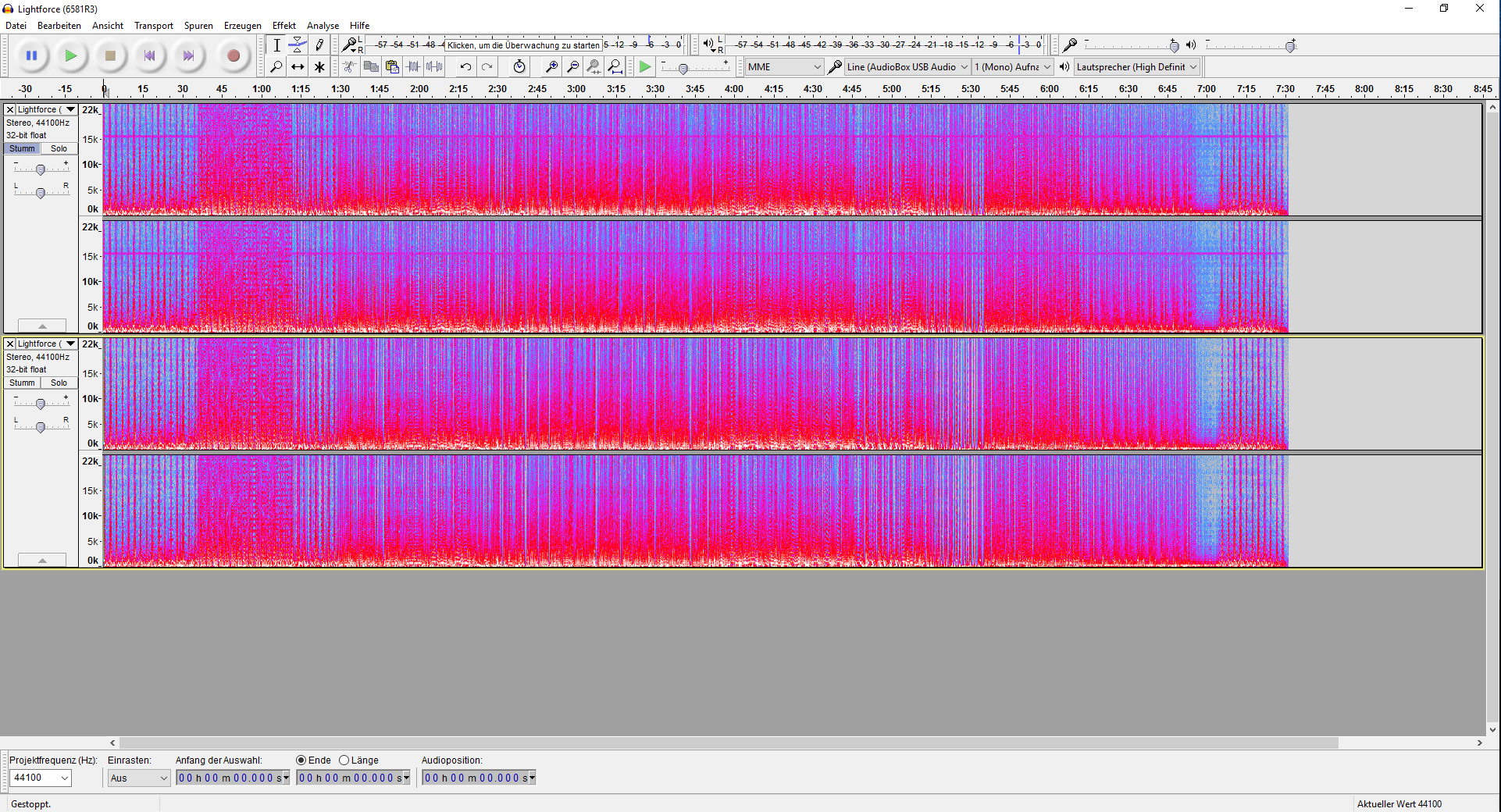

The interactive diagram lets you choose a window size to see how the spectrogram varies. A window of 8192 samples, the longest window we offer, is taking samples over a duration of 8192/44100 seconds, or about 1/5th of a second. When measuring the frequencies, Audacity looks over a range of samples called a 'window'. 4,410 samples would be 1/10th of a second and 441 samples 1/100th of a second. The underlying audio was sampled at a frequency of 44.1KHz (see panel in left of spectrogram), in other words there are 44,100 audio samples for each second of sound.

On the spectrogram find the area that's white in colour of highest frequency - at about 5KHz.The 'd' and 't' are 'plosive' sounds - there is a burst of air pressure to make the sound. On the spectrogram, find the regions of near silence to find the following 'd' and 't'.The 'd' and 't' consonant sounds are much shorter, and are preceded by a small near silence. Vowel sounds show a sustained sound, each with a few strong frequencies. The distinction between vowel sounds and consonant sounds is visible from the spectrogram. Move the cursor over different parts of the spectrogram to see which parts of the spectrogram correspond to which sounds. The horizontal axis is time and the vertical axis frequency. The interactive diagram below shows a spectrogram for the word 'Audacity'. We aim to increasingly add interactive diagrams to these pages and over time connect better to the doxygen documentation. This page of developer code and/or digital audio documentation is part of a collection of pages for learning about our code.


 0 kommentar(er)
0 kommentar(er)
